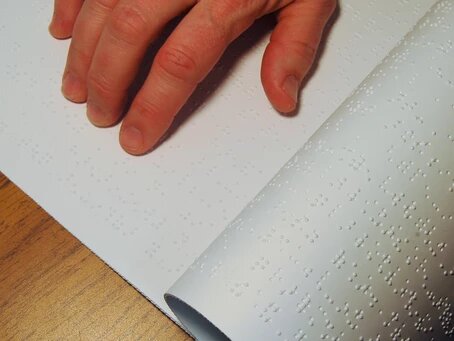Stereotypes and Indian society are closely connected. The Indian society has a remarkable trait of labelling or categorizing people who seem to be different, be it on the basis of social status, identity, intellect or even physically. Our society at times tends to forget that even children with disabilities are human. We often talk about human rights, but has this question ever crossed our mind how often do we talk about people with disabilities and their rights?
Children with disabilities do not live a normal life and are often caged into the four walls of their homes. At times they are even exploited and molested because of their physical inability to escape and most of them end up suffering in silence for the rest of their life. They prefer to avoid public places and social gatherings. Because of the stigma that we as a society have imposed on them, they tend to isolate themselves from the rest of the world. According to UNICEF, In India, 1.67% of the 0-19 age group in our population has a disability. 35.29% of all people living with disabilities are children (2019). Other estimates say that India has 12 million children living with disabilities. Only 1% of children with disabilities have access to school. This is the very reason why most of them are uneducated and unaware of their rights. Children with disabilities are at 1.7 times greater risk of being subjected to some form of violence. As compared to boys, girls with disabilities are at an even higher risk of being sexually exploited.
Some of the reasons as to why children with disabilities are more prone to exploitation and abuse are:-
- Abusers often see a child with disabilities as weak, even more, vulnerable and less likely to report abuse, which makes him/her an easy target.
- In the majority of cases, the victim is familiar with his/her abuser. Many of the abusers are relatives, caregivers, neighbours, classmates or educators.
- Sometimes the victim does not even realize that he/she has been abused, due to lack of awareness.
- Limited knowledge about access to law, medical or social services representatives, or others who can intervene and help.
- Children with limited communication abilities and/or cognitive disabilities find it difficult to report abuse effectively.
- Many children with disabilities are afraid that they will be neglected or ignored when they do report abuse.
- Oftentimes children with disabilities believe that they deserve to be abused owing to their low self-esteem.
The first and foremost step towards preventing any kind of exploitation against children is to make them understand what exploitation is and be it of any type of physical, verbal, or sexual should not be tolerated. Since children with disabilities often fail to escape from their perpetrator because of their limited physical and mental capacities, it makes it even more necessary to make them aware from an early age. Boys and girls of the age group 5-12 years are often an easy target.
One of the easiest ways to educate them about such an issue is to read books along with them on the subject and encourage them to ask questions. Another way is to explain to them the difference between a good touch and a bad touch. Children with dyslexia and other disorders are more artistically inclined therefore art can be a medium to initiate a conversation with them on such a sensitive issue. Motivating children to seek help is another alternative.
Children with disabilities should also be educated and informed about their rights which seek to protect them against any kind of exploitation and discrimination. The Constitution of India has imposed several laws to safeguard the rights of people with disabilities like:- The Person with Disabilities Act, 1995, The Mental Health Act, 1987, The National Trust for Welfare of Persons with Autism, Cerebral Palsy, Mental Retardation, and Multiple Disabilities Act, 1999. And several other laws against sexual exploitation which include:
· Protection of Children from Sexual Offences Act (POCSO), 2012; seeks to provide for the protection of children from offences of sexual assault and sexual harassment. It gives special rights to the child victim in cases relating to child sexual abuse such as setting-up of special courts, special prosecutors, and support persons.
· The Criminal Law (Amendment) Act, 2013; includes several provisions to safeguard the rights of women and girls, including those with disabilities, and facilitate their participation within the investigative and judicial processes. For instance, women and girls with disabilities have the right to record their statement with police in their home or any place of their choice, and the right to assistance by an interpreter or support person when the complaint is recorded and during the trial. The protections also apply to women who are seriously physically injured or who have a temporary disability.
Apart from these laws, non-government organizations have also played a major role in making children with special needs familiarize with such an important issue. What’s even more important is the role that society plays in making this world a better place. We hear people saying that a child is suffering from a disability, but the reality is that people with disabilities be it, children or adults, not only suffer because of their physical or mental health condition. They also suffer because of the neglect, the ignorance and the experience of how the rest of society treats them. We as a society have a collective responsibility of treating people with disabilities with the same rights and dignity.
References
“Invisible Victims of Sexual Violence.” Human Rights Watch, 11 Apr. 2018, www.hrw.org/report/2018/04/03/invisible-victims-sexual-violence/access-justice-women-and-girls-disabilities. Accessed on 12th October 2020.
Keyword Analysis & Research: Disabled People Laws. www.au-e.com/search/disabled-people-laws. Accessed on 12th October 2020.
“Only 1% of Children with Disabilities in India Have Access to School |.” Building Bridges to Opportunity in Indian Economy, ictpost.com/only-1-of-children-with-disabilities-in-india-have-access-to-school-2/. Accessed on 12th October 2020.




